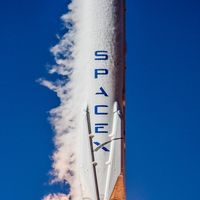Gates vs. Musk: A Philanthropic Showdown
May 9, 2025, 4:16 am

Location: United States, District of Columbia, Washington
Employees: 5001-10000
Founded date: 2002
Total raised: $7.53B

Location: Switzerland, Geneva, Chambésy
Employees: 5001-10000
Founded date: 1948

Location: Switzerland, Geneva, Le Grand-Saconnex
Employees: 501-1000
Founded date: 2002
In a world where wealth and influence collide, two titans stand at opposite ends of a moral battlefield. Bill Gates, the Microsoft co-founder, has vowed to give away $200 billion by 2045. His mission? To eradicate diseases, reduce poverty, and save lives. But his announcement comes with a sharp jab at Elon Musk, the world’s richest man, whom Gates accuses of jeopardizing the lives of the poorest children through drastic cuts to U.S. foreign aid. This clash of billionaires highlights a critical moment in global philanthropy and the future of humanitarian efforts.
Bill Gates is no stranger to philanthropy. His foundation has already disbursed $100 billion, making a significant impact on global health. Now, he’s accelerating his plans. By 2045, he aims to divest nearly all his wealth. The urgency is palpable. Gates believes that without immediate action, millions of lives will be lost. He paints a grim picture: a reversal of decades of progress in reducing mortality rates. The stakes are high.
Gates’ commitment comes against a backdrop of significant funding cuts. The U.S. government, under Musk’s influence, has slashed international aid budgets. Musk has boasted about these cuts, likening the process to feeding the U.S. Agency for International Development (USAID) “into the wood chipper.” The implications are dire. With 80% of USAID programs facing cuts, the potential for increased deaths from preventable diseases looms large.
Gates’ criticism of Musk is pointed. He argues that the richest individuals have a responsibility to support the most vulnerable. The image of the world’s wealthiest man harming the poorest children is a stark metaphor. It underscores the moral obligation that comes with immense wealth. Gates believes that without government support, his foundation’s efforts will fall short. He emphasizes that philanthropy cannot fill the gaps left by government funding.
The Gates Foundation’s budget is set to reach $9 billion by 2026, with expectations of $10 billion annually thereafter. Yet, Gates warns that this is not enough. He urges governments and wealthy individuals to step up. The future of global health hangs in the balance. The foundation’s mission is ambitious: eradicate diseases like polio and malaria, and prevent deaths among women and children. But without adequate funding, these goals may remain out of reach.
The tension between Gates and Musk is palpable. Once allies in the realm of philanthropy, their relationship has soured. Musk’s response to Gates’ warnings was dismissive, even vitriolic. He claimed Gates should be in prison, a comment that adds fuel to the fire of their public feud. This clash is not just personal; it reflects a broader debate about the role of billionaires in society.
As Gates celebrates the 25th anniversary of his foundation, he reflects on its achievements. The foundation has saved millions of lives and supported initiatives like Gavi, the vaccine alliance, and the Global Fund to Fight AIDS, Tuberculosis, and Malaria. Yet, it faces criticism for its immense power and influence. Some argue that such concentrated wealth in philanthropy lacks accountability. The question remains: who holds these billionaires accountable?
Gates’ vision for the future is one of hope. He believes that governments will eventually return to prioritizing the survival of children. However, this optimism is tempered by the reality of current funding cuts. The next few years will be critical. The potential for increased mortality rates due to funding shortfalls is a looming threat.
In Africa, some governments have begun reallocating budgets in response to aid cuts. This proactive approach offers a glimmer of hope. However, Gates warns that certain diseases, like polio, cannot be eradicated without U.S. funding. The interconnectedness of global health funding is evident. The actions of one nation can have ripple effects across the globe.
As Gates prepares to close his foundation in 2045, he reflects on the journey. The initial plan was to wind down operations after the founders’ deaths. Now, the timeline has shifted. Gates is determined to leave a legacy of impact. His commitment to giving away 99% of his fortune is a testament to his belief in the power of philanthropy.
The clash between Gates and Musk is more than a personal feud; it’s a reflection of the challenges facing global philanthropy today. As the world grapples with pressing issues like poverty and disease, the role of billionaires in addressing these challenges is under scrutiny. The stakes are high, and the future remains uncertain.
In the end, the battle between Gates and Musk may serve as a catalyst for change. It highlights the need for collaboration among the wealthy, governments, and organizations dedicated to humanitarian efforts. The world is watching. The question remains: will the richest among us rise to the occasion, or will they continue to prioritize their interests over the needs of the most vulnerable? The answer could shape the future of global health and philanthropy for generations to come.
Bill Gates is no stranger to philanthropy. His foundation has already disbursed $100 billion, making a significant impact on global health. Now, he’s accelerating his plans. By 2045, he aims to divest nearly all his wealth. The urgency is palpable. Gates believes that without immediate action, millions of lives will be lost. He paints a grim picture: a reversal of decades of progress in reducing mortality rates. The stakes are high.
Gates’ commitment comes against a backdrop of significant funding cuts. The U.S. government, under Musk’s influence, has slashed international aid budgets. Musk has boasted about these cuts, likening the process to feeding the U.S. Agency for International Development (USAID) “into the wood chipper.” The implications are dire. With 80% of USAID programs facing cuts, the potential for increased deaths from preventable diseases looms large.
Gates’ criticism of Musk is pointed. He argues that the richest individuals have a responsibility to support the most vulnerable. The image of the world’s wealthiest man harming the poorest children is a stark metaphor. It underscores the moral obligation that comes with immense wealth. Gates believes that without government support, his foundation’s efforts will fall short. He emphasizes that philanthropy cannot fill the gaps left by government funding.
The Gates Foundation’s budget is set to reach $9 billion by 2026, with expectations of $10 billion annually thereafter. Yet, Gates warns that this is not enough. He urges governments and wealthy individuals to step up. The future of global health hangs in the balance. The foundation’s mission is ambitious: eradicate diseases like polio and malaria, and prevent deaths among women and children. But without adequate funding, these goals may remain out of reach.
The tension between Gates and Musk is palpable. Once allies in the realm of philanthropy, their relationship has soured. Musk’s response to Gates’ warnings was dismissive, even vitriolic. He claimed Gates should be in prison, a comment that adds fuel to the fire of their public feud. This clash is not just personal; it reflects a broader debate about the role of billionaires in society.
As Gates celebrates the 25th anniversary of his foundation, he reflects on its achievements. The foundation has saved millions of lives and supported initiatives like Gavi, the vaccine alliance, and the Global Fund to Fight AIDS, Tuberculosis, and Malaria. Yet, it faces criticism for its immense power and influence. Some argue that such concentrated wealth in philanthropy lacks accountability. The question remains: who holds these billionaires accountable?
Gates’ vision for the future is one of hope. He believes that governments will eventually return to prioritizing the survival of children. However, this optimism is tempered by the reality of current funding cuts. The next few years will be critical. The potential for increased mortality rates due to funding shortfalls is a looming threat.
In Africa, some governments have begun reallocating budgets in response to aid cuts. This proactive approach offers a glimmer of hope. However, Gates warns that certain diseases, like polio, cannot be eradicated without U.S. funding. The interconnectedness of global health funding is evident. The actions of one nation can have ripple effects across the globe.
As Gates prepares to close his foundation in 2045, he reflects on the journey. The initial plan was to wind down operations after the founders’ deaths. Now, the timeline has shifted. Gates is determined to leave a legacy of impact. His commitment to giving away 99% of his fortune is a testament to his belief in the power of philanthropy.
The clash between Gates and Musk is more than a personal feud; it’s a reflection of the challenges facing global philanthropy today. As the world grapples with pressing issues like poverty and disease, the role of billionaires in addressing these challenges is under scrutiny. The stakes are high, and the future remains uncertain.
In the end, the battle between Gates and Musk may serve as a catalyst for change. It highlights the need for collaboration among the wealthy, governments, and organizations dedicated to humanitarian efforts. The world is watching. The question remains: will the richest among us rise to the occasion, or will they continue to prioritize their interests over the needs of the most vulnerable? The answer could shape the future of global health and philanthropy for generations to come.
